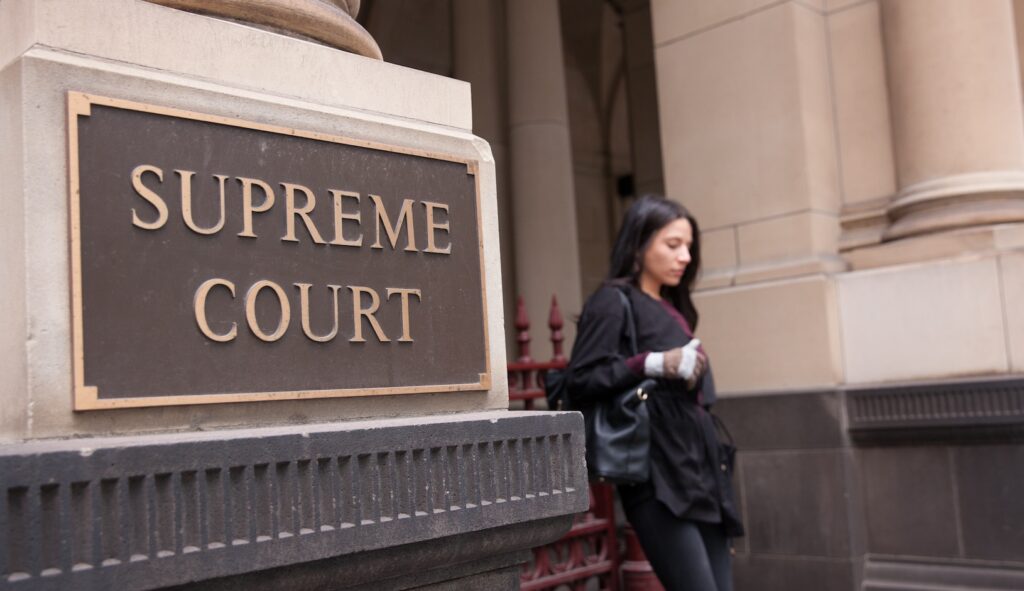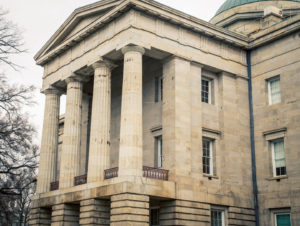Michigan families ask Supreme Court to overturn state’s Blaine Amendment
Five Michigan families are asking the U.S. Supreme Court to overturn an anti-religious amendment in the state constitution.
The plaintiffs argue Article VIII Section 2 of the Michigan…

Five Michigan families are asking the U.S. Supreme Court to overturn an anti-religious amendment in the state constitution.
The plaintiffs argue Article VIII Section 2 of the Michigan Constitution violates the Fourteenth Amendment by effectively discriminating against religious students and educational institutions.
Article VIII Section 2, also called a Blaine Amendment, reads in part:
“No public monies or property shall be appropriated or paid or any public credit utilized, by the Legislature or any other political subdivision or agency of the state indirectly or indirectly to aid or maintain any private, denominational or other nonpublic, pre-elementary, elementary, or secondary school.”
Blaine Amendments appear in 37 state constitutions and are a relic of 19th-century anti-immigrant and anti-Catholic bigotry, specifically designed to stifle private Catholic schools by denying them public funds.
The Mackinac Center for Public Policy filed the writ of certiorari with the Supreme Court, explaining why Michigan’s amendment should be overturned.
“In three recent cases, the Supreme Court has sought to prevent discrimination against religious schools,” said Patrick Wright, vice president for legal affairs at Mackinac. “Though written in neutral terms, Michigan’s Blaine amendment cannot be separated from its sordid history. The Court should strike down this barrier to school choice.”
The three cases in question – Trinity v. Comer, Espinoza v. Montana and Carson v. Makin – all found it unconstitutional for private, religious institutions to be excluded from public funding purely due to their religious status.
However, Michigan’s case is unique because its amendment doesn’t explicitly target religious or sectarian institutions.
As a result, a Michigan District Court and the Sixth Circuit Court of Appeals ruled in favor the amendment in the case, Hile v. Michigan.
But the plaintiffs are refusing to give up and now want the Supreme Court to hear their case.
The writ of certiorari argues Michigan’s amendment was “adopted for the same antireligious purpose and [has] the same antireligious effect” as other states’ Blaine Amendments.
The advocacy group which got the amendment passed was even called “Council Against Parochiaid” – a play on the word “parochial” – rather than “Council Against Nonpublic Schools.”
Although the language of Article VIII Section 2 isn’t explicitly anti-religious, “facial neutrality does not give the government a free pass in the equal protection context,” the writ of certiorari argues.
“Where, as here, discrimination motivated a facially neutral enactment, the enactment violates the Equal Protection Clause.”
It also notes that religious students and schools are disproportionately affected by the Blaine Amendment, since 74% of Michigan’s nonpublic schools are religious – the religious ones educating 90% of non-public school students.
“Left undisturbed, the Sixth Circuit’s decision instructs other states that they need only adopt a facially ‘neutral’ Blaine Amendment that prohibits funding to private secular and religious schools alike to get around those decisions [Trinity, Espinoza, and Carson],” the appeal concludes. “To preempt such efforts, the Court must grant the petition and clarify that sham neutrality is no panacea for blatant religious discrimination.”



